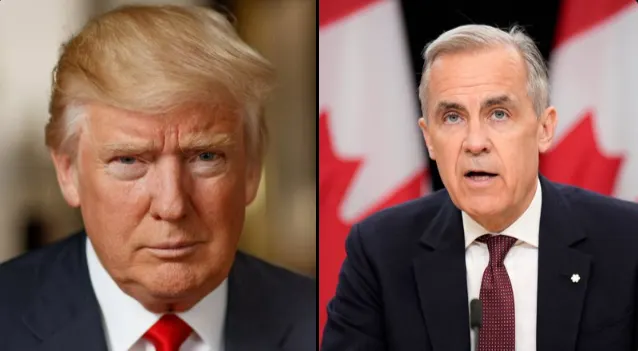Canada Drops Digital Services Tax to Reopen U.S. Trade Talks Amid Tense Negotiations
OTTAWA, Canada – June 30, 2025 – In a significant move aimed at de-escalating trade tensions and reopening crucial negotiations with the United States, Canada has announced its decision to rescind its controversial Digital Services Tax (DST). The announcement comes just days after U.S. President Donald Trump abruptly suspended trade talks in retaliation for the impending levy, calling it “a direct and blatant attack.”
Canadian Prime Minister Mark Carney confirmed on Sunday that he and President Trump have agreed to resume trade negotiations, targeting a comprehensive deal by July 21, 2025 – a timeline set during this month’s G7 Leaders’ Summit in Kananaskis. The Canadian Finance Ministry stated that the withdrawal of the DST is in anticipation of a “mutually beneficial comprehensive trade arrangement.”
The Contested Digital Services Tax
Canada’s Digital Services Tax Act (DSTA), which was set to take effect on Monday, June 30th, aimed to impose a 3% levy on revenues generated from Canadian users by large technology firms. This applied to companies with global revenues exceeding $820 million and Canadian revenues over $14.7 million, regardless of their physical presence in the country. Critically, the tax was designed to be retroactive, with payments due on revenues dating back to January 1, 2022, potentially incurring a combined $2 billion bill for American companies.
Digital services targeted by the levy included online marketplaces, social media platforms, digital advertising, and the sale or licensing of user data, impacting major U.S. tech giants such as Apple, Alphabet (Google), Amazon, and Meta. Unlike traditional corporate taxes based on profits, the DST targeted gross revenue linked to user engagement, a point of contention for the U.S. administration.
Trump’s Swift Retaliation and Canada’s Retreat
President Trump’s response to Canada’s insistence on implementing the DST was immediate and severe. On Friday, he announced the termination of all trade discussions with Canada, effective immediately, and threatened to impose new tariffs on Canadian goods within seven days. Trump publicly labeled Canada as “a very difficult Country to TRADE with” and condemned the digital tax as “egregious.”
Canada’s quick reversal signals the high stakes involved in maintaining trade relationships with its largest trading partner. The decision has been described by political science experts as a “clear victory” for President Trump and major U.S. tech companies, making Prime Minister Carney appear vulnerable to the U.S. President’s demands.
Path Forward for Negotiations
With the DST now rescinded, attention turns to the resumed trade negotiations. Canada’s Finance Minister François-Philippe Champagne emphasized that dropping the tax will allow “vital progress” in establishing a new economic and security relationship with the United States.
However, the path to a comprehensive agreement may not be entirely smooth. The Trump administration has previously indicated expectations for additional Canadian concessions, particularly concerning long-standing agricultural tariffs. The past few months have seen fluctuating trade tensions between the two close allies, with President Trump frequently criticizing Canada and even suggesting its absorption as a U.S. state. Despite these underlying tensions, the resumption of talks offers a renewed opportunity to stabilize the crucial bilateral trade relationship.

